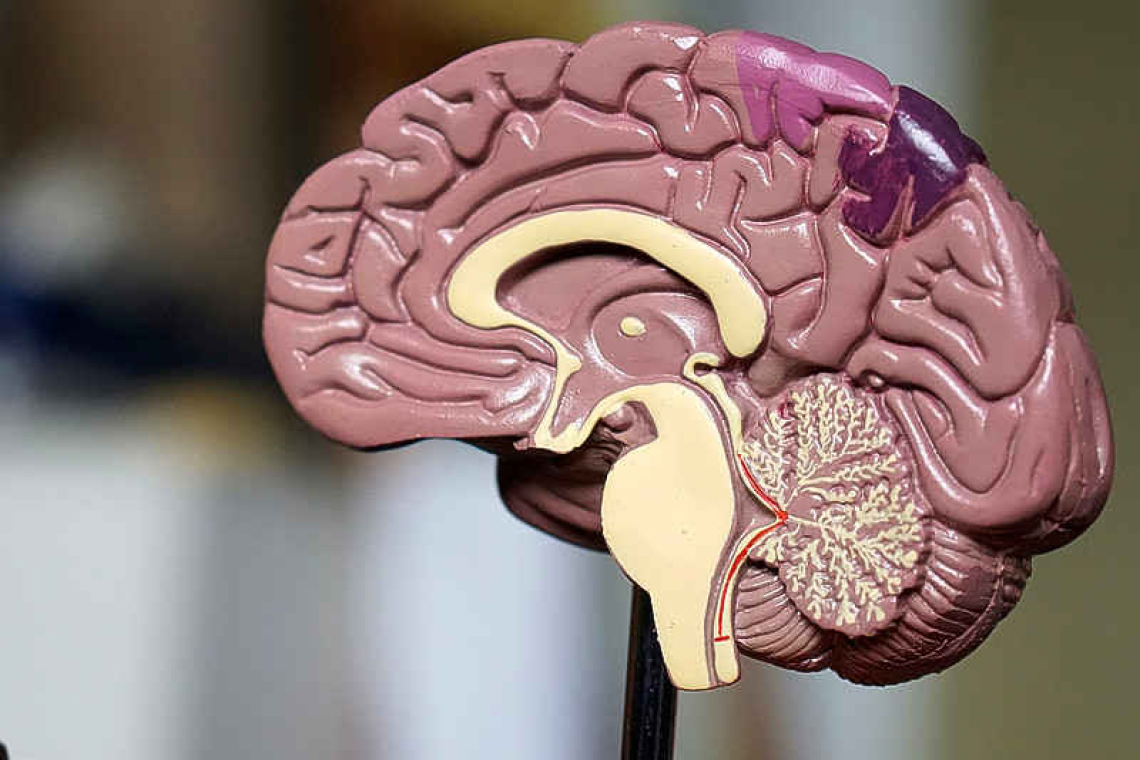By Dr. Colin Michie FRCPCH University of Central Lancashire.
Dopamine is a brain messenger, released after pleasurable life events. Its enormous powers support our development and learning from childhood. However, if brain dopamine falls, the disorder of Parkinson’s disease develops.
Parkinson’s disease is a very common neurodegenerative condition – reductions in dopamine pose an enormous health challenge. Dopamine levels are important in several other neurological conditions too, including attention deficit hyperactivity disorder and drug abuse. If we lose 60-80% of dopamine transport through neurons in our midbrain, our muscles begin to malfunction. This situation, which is seen more frequently with increasing age, is more common in men. Dopamine-driving nerve cells in an area called the substantia nigra degenerate for a number of reasons, causing reductions in the actions of this crucial molecule.
A small proportion of cases of Parkinson’s is linked to inherited genes, some follow head trauma, infections such as meningitis or environmental toxins such as heavy metals. A very high consumption of soursop tea has been implicated in causing a variant of Parkinson’s disease found mainly in Guadeloupe.
Early signs of Parkinson’s include stiff or rigid muscles that move slowly and without control, perhaps on one side of the body initially. There may be a tremor in the hands when relaxed, a loss of balance on standing. Patients observe in hindsight that their writing became smaller, their drawing less accurate. Over time, their normal gait is replaced by a shuffle; a straight back by a stooped posture.
This disorder is named after a doctor, James Parkinson, who described patients with a “shaking palsy” in 1817. As well as muscle functions and tremors, Parkinson’s affects patients in many other areas of brain functions where dopamine transmission is important. Sleep disorders are common for instance, as are a loss of memory, a loss of smell and gut problems such as swallowing and constipation. There is an increased risk of apathy, depression, hallucinations and early death. Parkinson’s is truly a multisystem disorder that varies between individuals, but invariably involves families and communities.
No treatment has been found to stop the progression of Parkinson’s disease. Doctors are keen to make this diagnosis rapidly, though, for two reasons:
First, undertaking physical activity does slow the advances of Parkinson's. Exercise is a valuable habit for all patients! Aerobic exercises improve quality of life, prevent falls and reduce the risk of apathy and depression. Whether it is high performance exercise, such as boxing, routines with closed eyes (sensory exercises) or even a virtual reality guided session, there are measurable benefits. Tai-chi or similar exercises improve balance and gait too.
Second, there is no way to predict how rapidly Parkinson’s might advance. In some individuals, the disease may progress rapidly, so starting aggressive treatment early will bring relief. First-line medications to increase dopamine levels in the brain should be prescribed. The barrier between blood and brain prevents dopamine itself from doing this, so levodopa is the usual first-line medication. It may be combined with carbidopa to increase the length of its activity. This medication needs to be taken frequently and regularly; many patients use an alarm system to remind themselves to take it!
If the tremors and stiffness are resistant to these dopamine-replacement medications, a system of electrodes can be implanted into the brain to provide deep brain stimulation. This approach has been found effective for over 60 years; it has become progressively more sophisticated. As with the medical treatments, although stimulation improves quality of life, it does not cure the disease. Current systems are being trialled to deliver tailored stimulation in real time, so that it can adapt to the condition of a patient.
An increasing range of personalised therapies need to be considered by patients and families for the varied symptoms related to Parkinson’s. For instance, occupational and speech therapy, palliative care and support are often found more helpful than expected. Medication in patches may assist with reducing apathy. Devices and aids can assist with gait and safety in the home. Wearable devices that measure movement might prove very helpful too, helping decisions relating to medication. On St. Maarten, the Alzheimer Foundation in St. Peters can provide guidance and help.
New drug treatments are emerging following drug repurposing. Repurposing drugs can be valuable – for instance, the medication known as Viagra was developed originally for blood pressure problems, but has proved more valuable for erectile dysfunction. Similarly, a cough medication ambroxol, used to break down mucus in chest disorders, has been found to help modify aspects of Parkinson’s disease. Because this medication is known to be safe, it may be made available for Parkinson’s soon.
The challenges of Parkinson’s disease are many. Caring for patients in homes and communities requires understanding, tolerance, ingenuity and social goodness.
Useful resources:
https://www.alzint.org/member/sint-maarten-alzheimer-foundation/
https://www.nhs.uk/conditions/parkinsons-disease/
Dr. Colin Michie is currently the Associate Dean for Research and Knowledge Exchange at the School of Medicine in the University of Central Lancashire. He specializes in paediatrics, nutrition, and immunology. Michie has worked in the UK, southern Africa and Gaza as a paediatrician and educator and was the associate Academic Dean for the American University of the Caribbean Medical School in Sint Maarten a few years ago.







